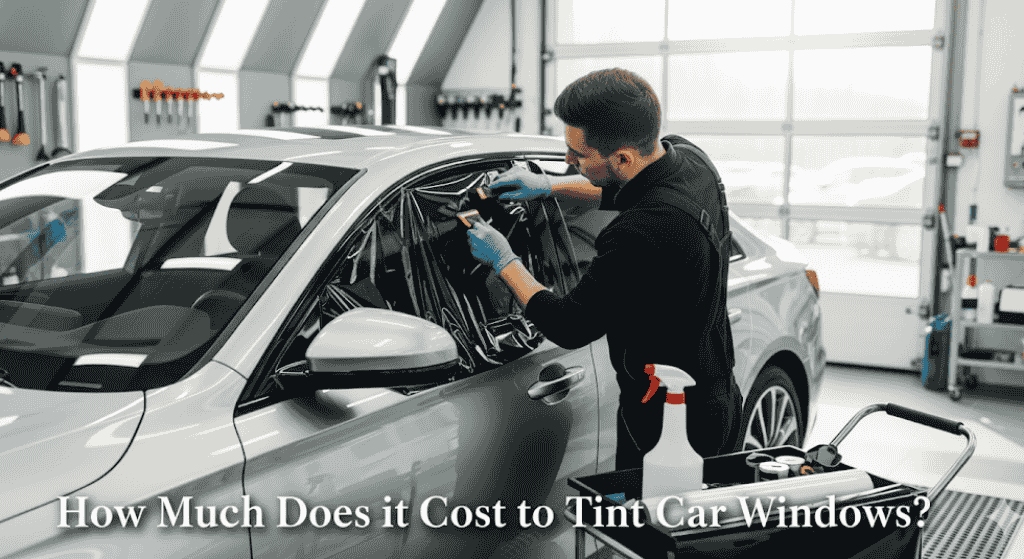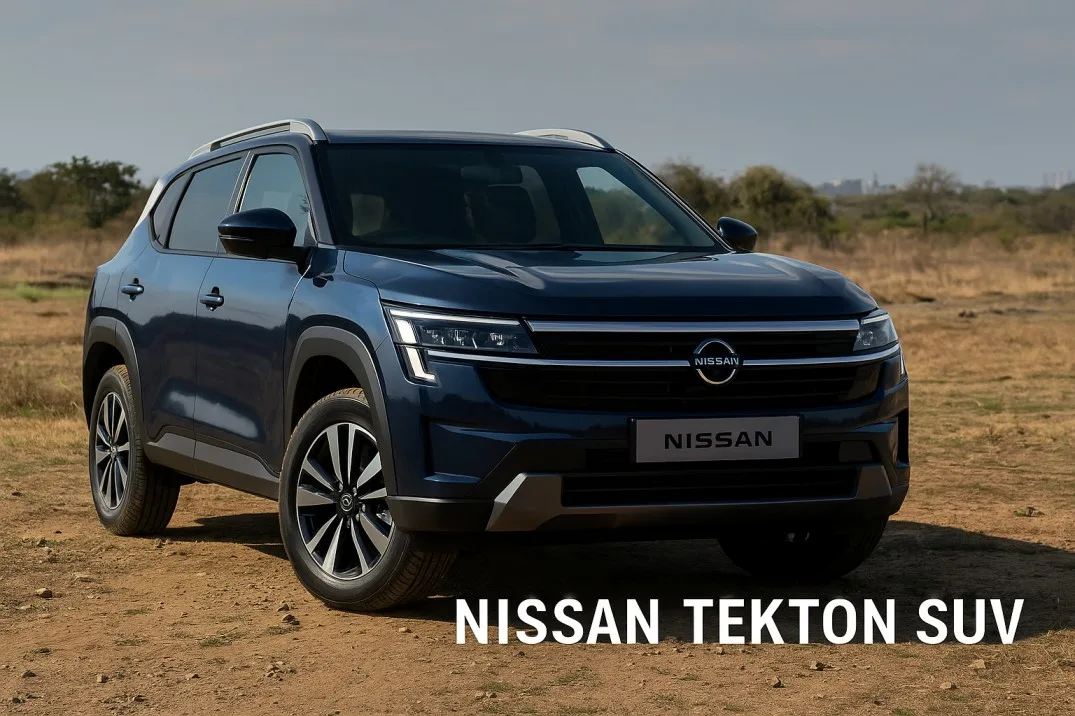Tinted car windows have emerged as one of the most popular mods for car owners all over the globe. Aside from aesthetics, tinted windows offer other unique benefits. Tints allow for greater privacy, reduced glare from direct sunlight, UV protection, and help to lower the temperature of your car’s interior throughout the summer months. For many people, it’s a permanent investment, as window tints typically protect car upholstery from fading and cracking over time.
Now, to size it up, you may be wondering: how much does it cost to tint car windows? Unfortunately, this does not have a straightforward answer. The price depends on some factors, such as the type of tint film, the number of windows you want tinted, your car’s make and model, and which city or country you live in.
In this guide, we will talk about the average cost of car window film, what goes into the pricing, and whether to install it yourself or hire a professional.
Factors That Affect Car Window Tinting Costs
When people search for how much to tint car windows, the price they find often varies widely. Here are the main reasons:
1. Type of Tint Film
- Dyed Film: This is the cheapest option. It is generally the cheapest option. It will provide some shade; however, it will fade fastest.
- Metallic Film: More durable than dyed film and reflects heat well while possibly interfering with electronic signals.
- Ceramic Film: The highest quality choice has the best heat rejection, UV protection, and durability. It is also the most expensive.
Naturally, ceramic window tint cost is higher, while dyed films make for a budget-friendly option.
2. Car Make and Model
When it comes to tinting vehicles, tinting a compact hatchback is significantly less expensive than tinting a luxury SUV or sedan. Because larger or uniquely shaped windows take more time and materials, the cost of the window film becomes proportionally higher.
3. Number of Windows
The price to have your car windows tinted will also depend upon how many windows you wish to tint. While a basic front window tint is less vigorous on the pocketbook, once you move to either side window, rear glass, or a panoramic sunroof, that is when the pricing escalates wildly.
4. Professional vs DIY
- Professional Installation: A more or less expensive upfront cost will result in precision, a warranty, and a longer possibility of the tint lasting.
- DIY: generally cheaper ($20-$100 generally); however, if not executed well could leave issues such as bubbles, peeling or scratching.
5. Location
Additionally, local market factors can enter the equation as well. Prices for window tinting in major metropolitan cities such as New York, London, or Sydney generally fall higher, driven by the labor costs and/or demand; price points vary lower, or more locally, in smaller towns.
Also Read: When to Change Car Tyres: Signs You Should Never Ignore
Average Cost of Tinting Car Windows
Are you trying to get an idea of how much it will cost to tint car windows on average? Here’s a breakdown.
- In the United States you can expect to pay between $100 – $500 depending on the type of film used, the number of windows, and the vehicle itself.
- In Europe, you can expect to pay between €100 – €400
- In Australia, that price comes to about AU$150 – AU$450.
Here’s how the price breaks down:
- A brief tint for 2–4 windows costs $100 – $200.
- A full car tint (all windows) – $200 – $500.
- Premium ceramic tint adds a premium price, which can even be more than $600 on larger vehicles.
Of course, the prices are influenced by the window tint laws of the local area. In many states/regions, there are laws in place that restrict how dark a window tint can be; this may affect your costs. For example, in the US the front windows typically have more restrictions than the back windows. In certain European countries, tints are also not allowed whatsoever. When calculating car windows tinting costs, remember to take into account both the film choice and law restrictions.
How to Choose the Right Window Tint for Your Car
Choosing the right film is determined by more than money; it’s also about performance and looks. Here are a few factors to consider:
- UV Protection: Check the tint film to ensure that harmful rays are blocked, providing protection to your skin as well as the interior of the vehicle.
- Heat Rejection: Upgrading to a high quality tint will help keep the cabin temperature down, especially ceramic tints, which will use less air conditioning and fuel.
- Durability: Inexpensive dyed films can become faded within 2-3 years while premium ceramic films can last for ten years or longer.
- Appearance: Darker shades can create privacy, and lighter shades can provide a clean and subtle appearance.
Installer Considerations
- Professional Installer: Typically more reliable and most often comes with a warranty.
- Do-it-Yourself Kits: Usually cheaper, very difficult to install. A common pitfall is bubbles or peeling.
Legal Considerations
Make sure to check your local regulations, because with the exception of some countries in Europe, the legality of tint (in terms of darkness) is correlated with state laws in the US. For example, in the US, every state makes its own rules for darkness of tint. Not observing the window tint darkness laws can and may effectively cost you fines and/or removal/costly re-installs, adding to the overall car window film cost.
Check: How to Import a Car from Dubai to India (Process, Charges & Agents)
DIY vs Professional Tinting: What’s the Best?
Do-It-Yourself Tinting
- Advantages: You can buy low-cost kits and install them at your leisure.
- Disadvantages: You may have an installation error, it may not last as long, and there is no warranty on your installation.
Professional Tinting
- Advantages: You get a professional to do the installation and it looks better, and they will carry a higher quality product and provide a warranty on the film and installation.
- Disadvantages: You have to spend more money upfront and you must schedule an installation.
Summary: If you are on a budget and want a temporary solution, maybe doing the work yourself is what you want, or if you want it to last and are looking for value, pay a company to do it.
Conclusion
So, what can you expect to pay for car window tinting? You will probably spend between $100 – $500, average prices depend on your vehicle, the type of window film, and location. There are other considerations such as how many windows, The quality of the tint, and whether you want to DIY or have it installed professionally.
In the end the right window film options depend on The cost, durability, comfort, and legality of films on the road. If you are still unsure, get multiple quotes from local tint shops to maximize value in your decision. Whether you invest in a DIY kit or professional installation window tint film is worth the investment in the comfort, style, and protection of your vehicle!





